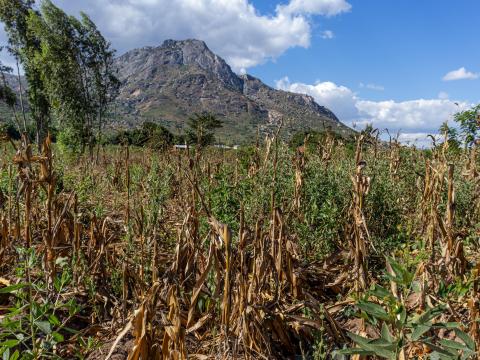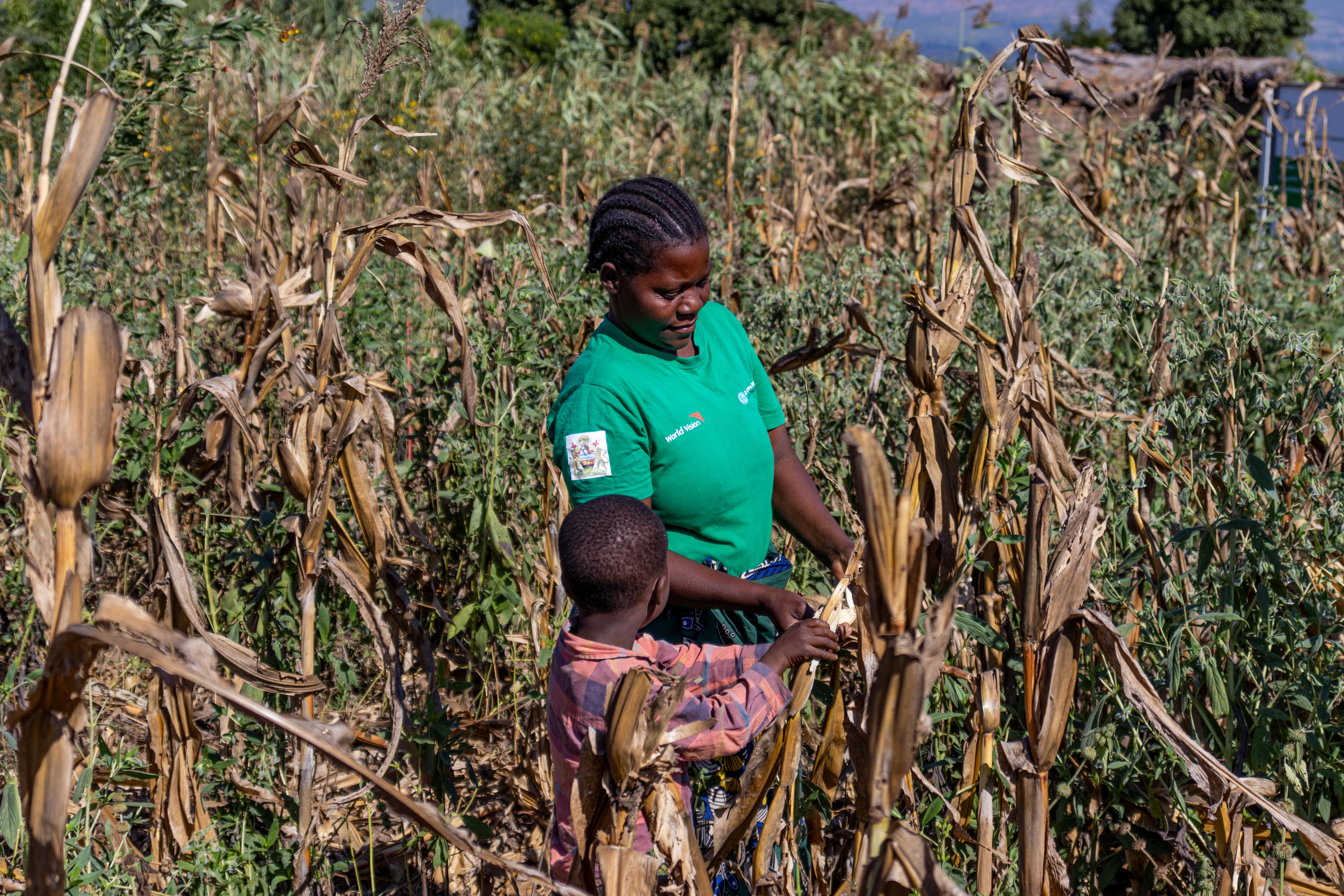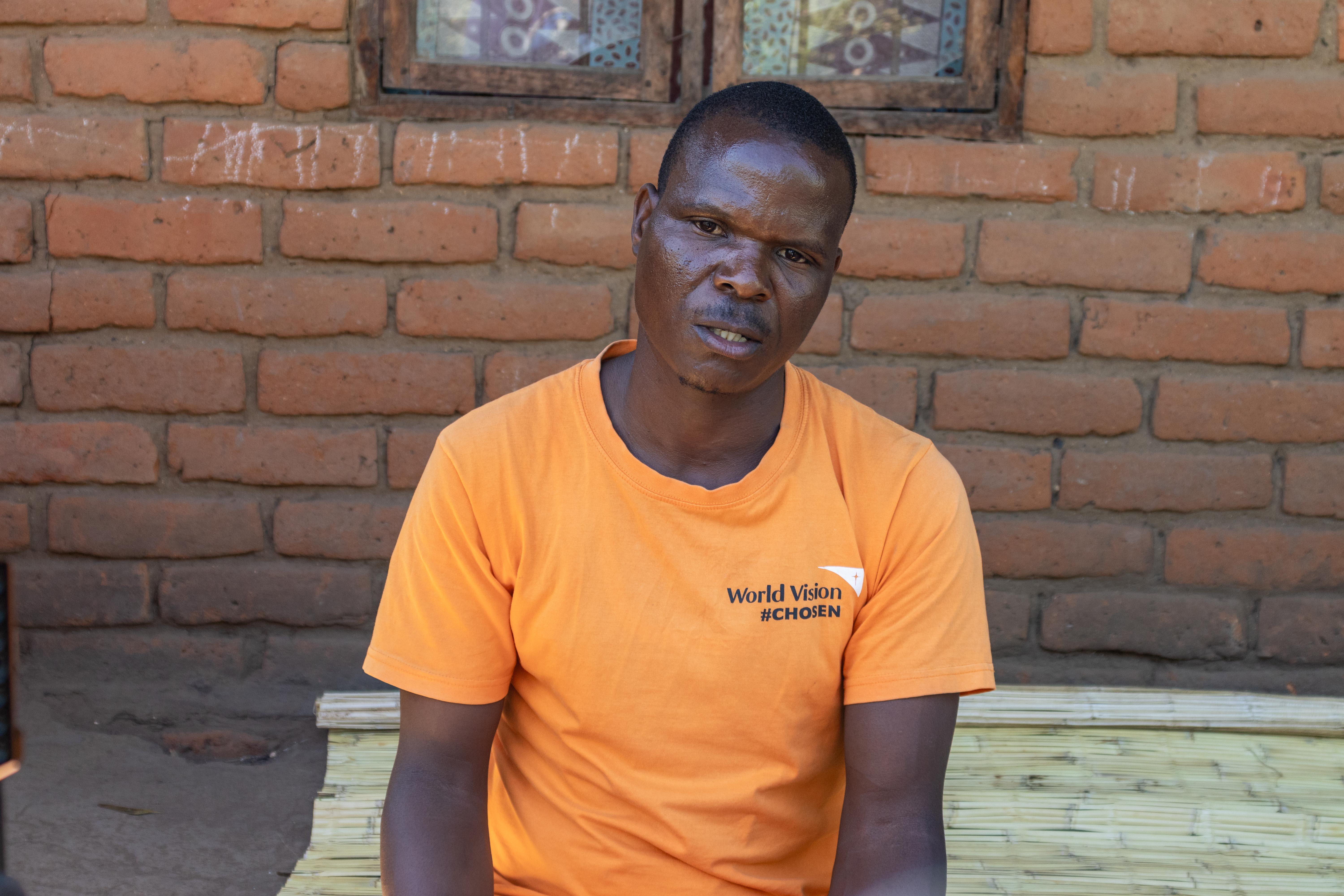A Village Under Siege: El Niño and the Fight for Survival

"I used to harvest 20 bags but now only two." From a garden located in front of her house, Mary Mukohiwa, 34, used to harvest 20 bags of maize when there are good rains. After harvest she would quickly plant sweet potatoes during winter cropping. It was more than enough to support the family throughout the year. But this year it is different. She only managed to salvage two bags due to El Niño.
There was simply no rain so the maize was stunted and did not produce cobs. El Nino caused flash floods in Lakeshore areas but in other areas like this village, Jimu, T/A Mkhumba in Phalombe it brought dry spells.
"The rain came in December then disappeared for a month. The maize almost dried. Then the rain came again in early February then disappeared again. It was terrible because we invested efforts and resources such as fertilizer and manure but got nothing," she said.

Even now, signs of El Nino are still visible in the village as dried maize stalks without cobs still stand in many gardens. Attempts at winter cropping are also proving difficult because the village is located very close to Machemba Mountain where the soil is dry. There is no river nearby for easy water supply for irrigation.
"I have tried to plant some maize for winter cropping on one part of the field. But it is difficult because water for irrigating the crops is scarce. We don't have a river nearby. We irrigate the maize using water from the borehole. Although the borehole is not very far it is always crowded because it serves a lot of people in the village. So to water my garden I wait until it is dark when there are no people at the borehole which is not good because at night we are supposed to be resting. But I have no choice because I didn't harvest due to the dry spells" she said.
Mukohiwa said the village could benefit a lot from solar powered pumps which are used to draw water for irrigation in villages that practice winter cropping in the district. The dry spell has come hot on the heels of Cyclone Freddy which eroded crops in many villages in the area. The whole situation has impacted negatively on the nutrition of the family especially the children.
"An adult can skip a meal and it will be okay but for children it is difficult. Because it affects their growth, health and concentration in school," she said.
Mukohiwa has three children and they are all still in primary school. Chisomo, 14, is in grade 7, Bridget, 10, is in grade 4 and the little one, Wonderful, aged four who was sitting on his mother’s lap as she spoke to reporters is in nursery school.
So how has she survived with the children to ensure the hunger does not affect their progress in school?
"It has been very tough. Sometimes as a parent I don't eat just to make sure that my portion goes to the children. I also work odd jobs to make ends meet," she said. However, she was quick to mention that her involvement in World Vision International project, Integrated Resilient Programme, has helped her to find an alternative source of income.
Through Food for Asset Creation activities she has been able to get some money to support the family because they are paid something at the end of every month.
World Vision International with support from WFP and government has been running this project where communities are involved in reforestation and soil preservation activities. From these activities the participants get a token of appreciation of MWK45, 000 every month.
She said through this money, she buys shares in the village bank called Tikondane and the village bank invests the money in various businesses such as poultry farming and bee keeping. In fact, at her house there is a big Poultry house with 270 chickens belonging to the group.
“We started with 50 chickens. Then World Vision brought us more and we multiplied the chickens up to 270. We have also moved some chickens to other members to construct poultry houses like this one. The chickens lay eggs and then we sale them off after some time.
"At the end of the year we get shares from the village bank and that is the money that we use to improve our lives because we pay school fees, uniform and note books for the children," she said.
Chairperson of the group Frank Likaka said the village bank started in 2019 and has nine participants at the moment. He said through the village bank they have been running several businesses which has helped them cope with the effects of Cyclone Freddy and El Nino.

Mukohiwa's kids have also benefitted from her involvement in the nutrition and care group in the village. Through this group they are taught ways of making balanced diet from various foods that are easily available.
"At first we used to think a balanced diet is only for urban people with money to buy expensive foods. But we have been taught that we can also have a balanced diet through a careful mix of the food items locally available in the village," she said.